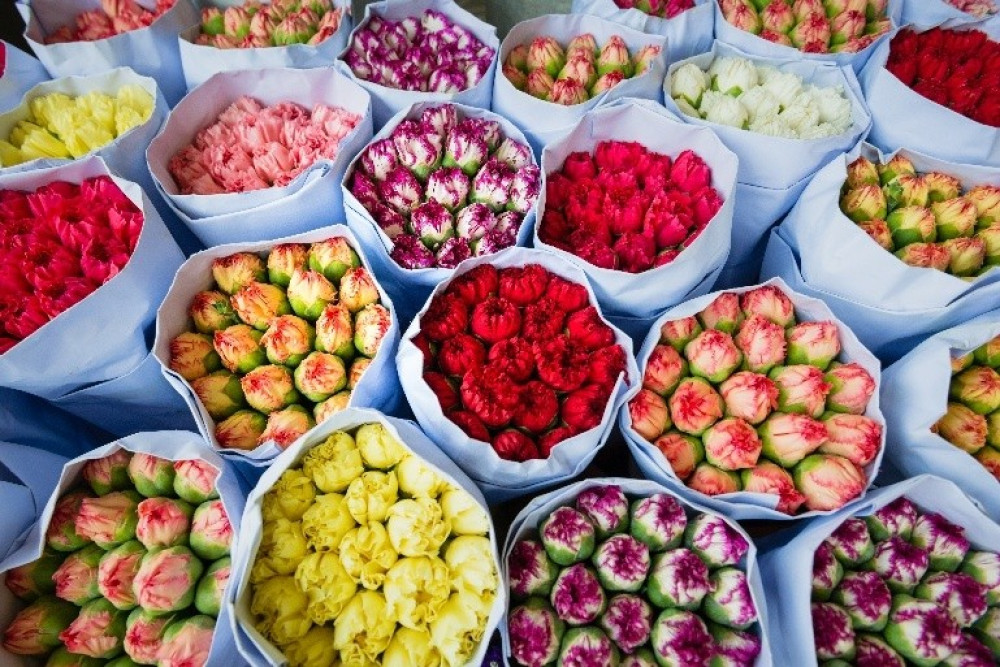
Purchases from wholesalers or direct contracts with plantations?
For any flower business, choosing a supplier is not just a matter of logistics, but a strategic decision on which literally everything depends: from the final price of the bouquet and marginality to product quality, stability of supply and the store's reputation in the eyes of the client. A mistake at this stage can be expensive: stale flowers or delivery failures immediately affect customer loyalty and reviews, and therefore future sales.
In 2025, florists have two key purchasing paths: working through wholesalers or direct contracts with plantations. Each of them has its own advantages and pitfalls. Wholesalers provide speed, a wide range and flexibility to small stores, but due to this, the price is higher. Direct purchases from farms allow you to reduce costs and get exclusive varieties, but require large volumes, competent logistics and the ability to plan demand.
There is no universal recipe for flower business owners: for some it is more profitable to rely on a proven wholesaler “nearby”, someone is ready to take risks for the sake of direct deliveries and premium quality, and someone combines both formats. That is why it is so important to analyze in detail what factors influence the choice and understand which path is right for your store.
Working with wholesalers: speed and accessibility
Purchasing from wholesale suppliers is the most common format, especially among small flower shops and studios.
Advantages:
- Quick availability: you can buy the flowers you need "here and now" without a long wait.
- Wide range: large wholesalers always have a choice from different countries - roses from Ecuador, tulips from Holland, carnations from Colombia.
- Low entry threshold: you don't need to buy hundreds of stems of one variety, you can take "mixed" lots.
Disadvantages:
- The price is higher than with direct purchases. The wholesaler includes his markup.
- It is more difficult to predict the quality: flowers pass through several hands and can lose freshness.
- Dependence on market fluctuations: during holidays, wholesalers' prices rise sharply.
Direct contracts with plantations: quality and marginality
Direct cooperation with manufacturers is a trend that has been gaining momentum in recent years. This path is often chosen by chain stores and large studios working with a large volume of orders.
Advantages:
- Minimum markup: the price is lower than that of wholesalers, especially for large quantities.
- Stable quality: flowers come directly from the manufacturer, there is less risk of losing freshness.
- Flexible terms: you can agree on regular deliveries, reserving varieties and even exclusive batches.
Disadvantages:
- High entry threshold: contracts require large purchase volumes.
- Logistics is more complicated: delivery from other countries requires customs control, phytosanitary documents and competent transportation.
- Dependence on one plantation: if the supplier has problems with the harvest or logistics, this immediately affects the business.
What should small and medium businesses choose?
- It is easier for small shops and studios to work through wholesalers: purchasing flexibility, quick access to assortment and the absence of bureaucracy outweigh.
- Medium-sized businesses should consider a combined strategy: basic purchases from wholesalers + pilot contracts with plantations for popular varieties.
- Large chains are increasingly switching to direct purchases, as this provides not only savings, but also unique positions that competitors do not have.
Trends of 2025
- Growing share of direct contracts. More and more players are trying to reduce the chain of intermediaries.
- Local suppliers. Russian greenhouses and farms are gaining popularity, which help reduce the risks of international logistics.
- Combined schemes. Many studios make a "mix": rare varieties are purchased directly, and basic positions are purchased from wholesalers.
Conclusion
The choice between a wholesaler and a plantation depends on the scale of the business and development strategy.
- For beginners and small stores, it is more convenient and safer to start with wholesale purchases.
- For more experienced players, ready for volumes and complex logistics, a direct contract opens up new opportunities for price, quality and uniqueness of the assortment.
The main thing to remember is that in the flower business, freshness and reliability are the most important. The client doesn't care where the rose came from - Holland or Columbia. What's important to him is a bouquet that will be beautiful and durable.
Your experience matters! Take a short survey and see what answers other flower business representatives gave. Take part







